Search Results
Showing results 501 to 520 of 665
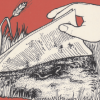
Junk-in-the-Box
Source Institutions
In this outdoor activity, learners explore how a surprising number of animals use human-made litter, such as cans and crumpled paper, to find food and shelter in their environment.
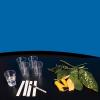
See the Colors in Leaves
Source Institutions
Learners use chromatography to separate and analyze the mixture of pigments in leaves. Use this activity to discuss photosynthesis as well as why leaves change color in autumn.
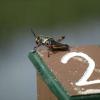
Jump Start
Source Institutions
In this movement and measurement activity, learners jump as far as they can three times, and compare their longest jump to the longest jump of their friends, classmates and/or family members.

Cheshire Cat
Source Institutions
Can you deceive your eyes? When your eyes work normally, you see a nice 3 dimensional picture, but what happens when each eye sees something different?
Read the Label: Nutrition and Percentage
Source Institutions
This activity combines learning about nutrition, math of measurement and proportion, and healthy eating. Start by distributing food packages with Nutrition Facts labeled.
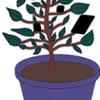
Do Plants Need Sunlight?
Source Institutions
In this activity, learners find out what happens when they cover leaves with pieces of black construction paper. This activity shows learners that plants need sunlight to survive.
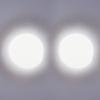
Overlapping Spots: Make a bright spot brighter
Source Institutions
This perception trick focuses on conflicting information to the brain...instead of trying to see two images, you're trying to get a bright spot by overlapping the image you see through two tubes.
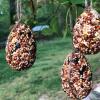
For the Birds
Source Institutions
In this activity, learners will explore nature by creating food for birds. Learners will develop fine motor skills and engage in nature observation through this activity.

Afterimage
Source Institutions
In this optics activity, learners investigate afterimages.

Peripheral Vision
Source Institutions
In this optics activity, learners conduct an experiment to explore peripheral vision. Learners collect data about their ability to see shapes, colors, or letters using their peripheral vision.
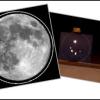
Magnification vs. Resolution: Can you see the flag on the Moon?
Source Institutions
This fun and simple hands-on astronomy activity lets learners explore the difference between telescope magnification and resolution.
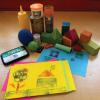
Shape Stamping
Source Institutions
In this activity, learners will explore two-dimensional shapes that are found in three-dimensional shapes. Learners will explore geometry, design, color and tool use through this activity.
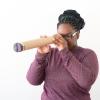
Persistence of Vision
Source Institutions
If you had a long tube with a 5 millimeter wide slit, would you see the entire Golden Gate Bridge?
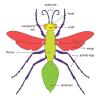
Invent an Insect
Source Institutions
In this creative activity, learners will find out what makes an insect an insect by studying examples of insect adaptations and by examining why there are so many different types of insects.

Polar Bear Glove
Source Institutions
In this activity, learners will explore how animal in cold areas stay warm.

See the Light
Source Institutions
Learners mix a solution of luminol with hydrogen peroxide to produce a reaction that gives off blue light.
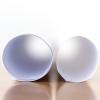
Lateral Inhibition
Source Institutions
Which one of your eyes are dominant? Do they act independently or are they equally "in control?" This activity explores how your eyes work (or don't work) together.
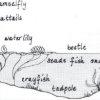
Habitats of the Pond
Source Institutions
In this outdoor activity/field trip, learners locate and study plants and animals in several freshwater pond habitats.
Animal Math Posters
Source Institutions
These math posters have questions written on them, such as: How fast can a cheetah run? or How long can a giant tortoise live? Post these around the room or leave them out for children to explore.
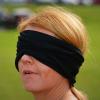
Two Ears are Better Than One: Sound Localization
Source Institutions
This activity (9th activity on the page) about hearing demonstrates to learners the importance of having two ears.
